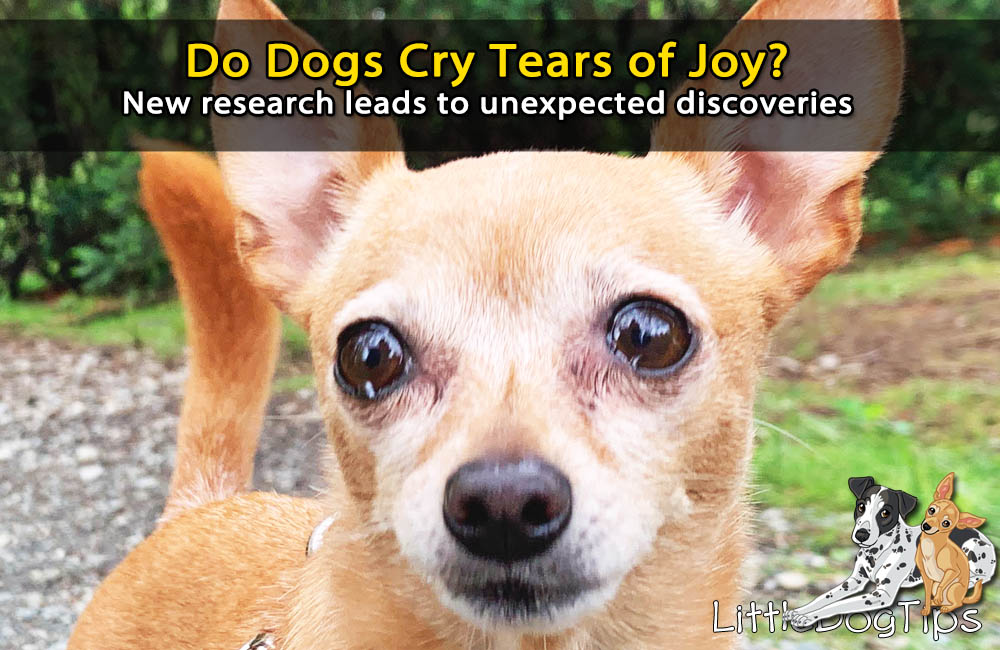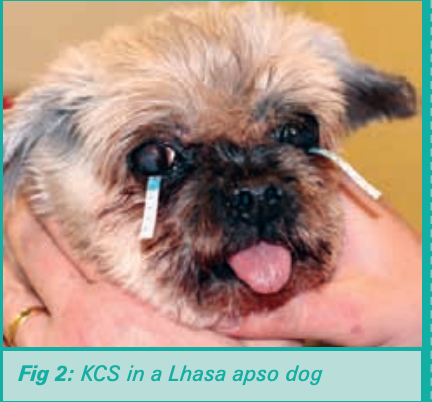
When I was a kid, the old dog books I’d pore over in the library would say to ignore your dog when you first come home.
It’s one of the things we love most about dogs – how they go crazy when we return to them, whether we’ve been gone five minutes or five days.
But sometimes their homecoming celebrations are tied to unwanted behaviors like jumping up, barking, or dribbling pee. The idea from old training advice is to be nonchalant in hopes that we could model to our dogs that it’s no big deal when we come home.
And that maybe their happy-you’re-home dance is some kind of evolutionary behavior, rather than a genuine display of joy.
But this new research from Japan is pretty solid evidence that dogs really do love us THAT much. And that Japan can be weird sometimes… but we already knew that, too.
The Experiment: Do Dogs Cry Tears of Emotion?
The recently published study, featured in Creative Biology magazine, was conducted by researchers at the School of Veterinary Medicine at Azabu University in Japan.
The researchers used the Schirmer Tear Test (STT) to measure tear production in dogs. The STT test involves placing a small, thin strip of filter paper under the lower eyelid. The strip of paper sticks out vertically and changes color when wet, making it possible to monitor tear production.
The STT test is normally used to measure tear production and aid diagnosis of dry eye in dogs, so it’s not as bizarre as it sounds.

Researchers found that dogs produced more tears when reunited with their owner after about 5-7 hours of separation. They produced more tears when reunited with their primary caretaker.
In humans, our tears have a different chemical makeup depending on how we feel. When we’re overcome with emotion, some of our stress hormones are actually flushed out through our tears. That’s why we often feel better after we cry. Also, the sight and scent of our tears influence behavior in other humans.
At this time we don’t know if the composition of a dog’s tears change with emotion.
But there’s another interesting part of this study.
Humans were shown photos of dogs – some with artificial tears applied, some without. The human test subjects reacted more positively to teary-eyed dogs.
Remember those ASPCA commercials that depicted footage of neglected animals with sad eyes, with that Sarah McLachlan song “Arms of an Angel,” playing?
Maybe that’s why those commercials were so effective at grabbing our heartstrings. We can’t resist teary-eyed animals.

Does Your Dog Cry?
Though research tells us that dogs may tear up when they’re happy to see us, most of us would agree that our dogs don’t actually cry.
Cow’s eyes never get teary. But Matilda’s eyes actually do well up.
She’ll shake, whine, and look at me with big, wet eyes when she wants food, or when I’m taking too long to get her under the covers in bed.
I always attributed this to her being a small dog. Small dogs tend to have tear ducts that are shaped in such a way that normal, non-emotional eye lubrication tears tend to drain down their face. That’s why our small dogs tend to get eye crust and tear stains.
Now I know that those tears may very well be a show of emotion.
I consider Cow to be my more emotional dog. She experiences extreme highs and lows, and she’s prone to anxiety and confusion. I haven’t noticed any teariness from her, and I rarely have to clean around her eyes.
What To Make of Dogs that Cry
Back to how we should react to our dogs when we come home…
Though they may tear up, dogs still may show unwanted behaviors when we walk through the door.
Even if your dog is simply happy to see you, it may not be acceptable for her to jump all over you when you come home.
When we’re dealing with unwanted behaviors, we have to put empathy first. Our dogs have trouble with self control when they’re emotional.
We can stop those behaviors – without neglecting our dog’s emotional needs – by being intuitive.
Why do dogs jump up on us when we come home? It’s usually because they can’t wait to greet us.
But it hurts when Cow jumps on me.
What’s helped is speaking to her in a soft voice when I come home. I do not come through the door until she’s sitting. When she’s had a moment to calm down, I get down on her level – so she doesn’t have to jump up to reach me – and give her the love and attention she’s looking for.
I don’t think it makes sense to totally ignore a dog who’s just happy to see you – but you don’t have to let homecomings be a huge deal, either.
Imagine your spouse or child ran up to you when you came home to give you a big hug and a kiss – but maybe you have a headache, so their excitement is overwhelming.
Would you knee them in the chest (as old dog training advice suggests!) – or would you gently calm them down and return the love?
When our dogs seek us out for comfort when they have big feelings – that’s one of the most wonderful things in the world. And when we meet their emotional needs, it’s much easier to encourage the behaviors we want to see.
